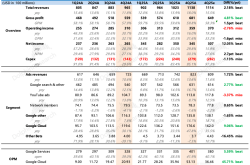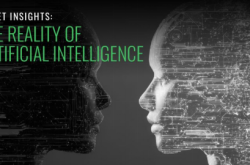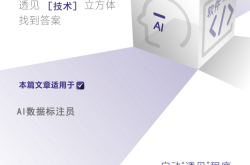Labubu and Xiaomi Yu7 Explode Overnight: Will JD.com Embrace Emotional Consumption?
![]() 07/10 2025
07/10 2025
![]() 654
654
From cold shelves to warm companionship, JD.com is once again proving its versatility.
Recently, JD.com's App officially launched two AI social products: "Pamper TA" and "Healing Little Universe." The former is a pet-centric AI community product that adds playability through costume changes and digital pets, while the latter is an AI-driven conversational product that provides users with round-the-clock mental companionship services.
JD.com is no longer fixated on replicating the old paths of group-buying and user acquisition. Instead, it is attempting to forge emotional bonds with AI, planting 'emotional anchors' in users' hearts, and ultimately leveraging a new approach to drive consumption conversions.
This shift is underpinned by JD.com's precise understanding of the pulse of the 'emotional consumption era' and a profound reflection on its own social e-commerce challenges.
JD.com's 'Hidden' Layout in the Era of Emotional Consumption
In June 2024, China's internet user base approached 1.1 billion, with an internet penetration rate of 78.0%. However, the growth rate of internet users has dropped to single digits, with only 0.76% in the second half of 2024.
As the internet user base becomes saturated, the traditional e-commerce model of 'search-compare-buy' is being forced into a dead end due to the rise of interest-based, content-based, and social e-commerce models.
Moreover, facing persistent pressure from Taobao and the price-lowering strategies of Pinduoduo, JD.com needs a new traffic engine.
The key to social e-commerce lies in 'trust transmission.' Users can establish emotional identification through friend sharing, KOL recommendations, or AI companionship, significantly reducing the cost of consumption decisions.
By combining pet socialization with medical consultation services, JD.com's "Pamper TA" leverages 'emotional necessities' to build trust. After purchasing clothing for virtual pets, users may naturally place orders for real pet food, completing a seamless transition from 'playing' to 'buying'.
Meanwhile, the pet economy is quietly rising in China. By 2025, the pet market size is expected to climb to 811.4 billion yuan, showcasing obvious characteristics of emotional consumption.

Image from Pixabay Free Image Library
With changes in population structure, pets have become important companions for alleviating loneliness. The popularization of the concept of 'parenting pets' also signifies a profound transformation in the role of pets. Young people, as the main group driving the pet economy, both desire pet companionship and require convenient one-stop services.
Additionally, the global mental health market is growing at an annual rate of 6.6% from 2024 to 2030, and is expected to reach $229.8 billion by 2030. Domestic market demand is particularly urgent.
In this regard, the head of JD Health's internet medical business has also stated directly that mental health is a 'responsibility that cannot be shirked and also has huge potential'.
In 2020, JD Health established the JD Health Mental Health Center. Three years later, it was upgraded to a mental health service center, bringing together more than 6,000 psychiatric specialists and over 1,000 psychological counselors.
However, pure human services are still unable to meet the explosive growth in demand, and the introduction of AI has brought the possibility of breaking the deadlock.
Dr. Tian Chenghua, chief physician of the Peking University Institute of Mental Health, stated that large models can replace more than half of manual operations in psychological testing, significantly improving accessibility and efficiency. Additionally, AI can assist psychiatrists in formulating treatment plans, markedly enhancing the level of treatment.
Based on precise insights into these two major emotional needs, JD.com simultaneously launched "Healing Little Universe" and "Pamper TA," planting the first chess pieces in the two blue oceans of mental health and the pet economy.
AI + Emotion + E-commerce: A New Form of Social E-commerce
Whether it's the pet economy driven by young people's desire to alleviate loneliness or the huge potential mental health market expanding at an annual rate of 6.6% globally, these are natural soils for building deep trust.
JD.com precisely targets these two blue oceans. On the one hand, it leverages "Pamper TA" to tap into the wave of 'parenting pets,' satisfying one-stop services and emotional sustenance; on the other hand, it responds to the explosive growth in mental health needs through "Healing Little Universe" and introduces AI technology to break through the bottleneck of scarce professional resources.
However, JD.com's ambitions extend beyond merely meeting needs. Its deeper strategy is to weave these emotional connection points into an invisible network.

Image from Pixabay Free Image Library
Using AI as the adhesive, while users immerse themselves in virtual companionship or emotional healing, JD.com quietly lays down a 'trust bridge' leading to consumption scenarios, ultimately constructing a sustainable business closed loop of 'AI-driven emotional interaction, emotions stimulating consumption intention, and consumption nurturing ecological construction'.
This also delineates a new form of social e-commerce. JD.com's social exploration can be summarized into three levels:
- Tool Level: Realizing basic functions such as group buying and cash back for sharing, solving the problem of 'how to buy cheaper'.
- Content Level: Focusing on live streaming, shopping circle UGC, and solving the problem of 'what's worth buying'.
- Emotional Level: Providing AI companionship and interest communities (such as pet communities, psychological counseling), solving the problem of 'why to buy'.
The two products currently launched by JD.com share the same business logic. First, establish trust through emotional companionship, and then naturally introduce consumption scenarios. Taking "Healing Little Universe" as an example, users can purchase a 30-minute psychological consultation for 49.9 yuan, including a system assessment and solution.
"Pamper TA" creates a more direct consumption scenario. When users interact with digital pets, they can easily access pet doctor consultations and food purchase areas. This design creates a closed-loop experience of 'playing and buying,' which has more emotional stickiness than traditional e-commerce and more consumption conversion paths than pure social products.
In comparison, most industry players currently remain at the tool level, while JD.com is climbing towards the top of the pyramid through products like "Pamper TA." This upgrade is also in line with the future trend of e-commerce competition shifting from 'transaction efficiency' to 'emotional efficiency'.
A Decade of Social E-commerce: JD.com's Gains and Losses
Today, JD.com is no longer satisfied with shallow group-buying tools or content marketing but instead directly addresses the emotional necessities deep within users' hearts. In the two blue ocean markets of pet companionship and psychological comfort, both with annual scales approaching trillions, JD.com has built up unique 'trust assets'.
Whether it's the conversion of 49.9 yuan psychological consultations in "Healing Little Universe" or the closed loop of pet consumption in "Pamper TA" where users 'play and buy,' they clearly outline a new business logic of 'emotion as the entry point, trust as the conversion'.
However, this path of breaking the deadlock through 'emotion-driven' is not the starting point of JD.com's exploration of social e-commerce.
At the beginning of the rise of social e-commerce, JD.com began to lay out this field. In 2016, JD.com officially launched its group-buying business, marking the starting point of its in-depth exploration of social e-commerce. In 2019, JD.com's group-buying business was renamed "Jingxi," focusing on the sinking market and competing fiercely with platforms like Pinduoduo and Juhuasuan. Now, it has returned to JD.com's main camp.
Looking back at its nearly decade-long journey in social e-commerce, from the failure of Jingxi to the silence of JD.com stores, JD.com has repeatedly encountered setbacks in the traditional social fission model. The root cause lies precisely in the unresolved core contradiction, which is how to effectively stimulate active sharing and trust transmission within a user ecosystem deeply rooted in 'purposeful shopping'.
Today's AI + emotionalization attempts are a reformation after profound reflection on past lessons. The two AI social products launched this time showcase a new approach, no longer replicating the group-buying model but instead delving into deep emotional needs in vertical fields. By building continuous emotional connections through AI, consumption becomes a natural extension of emotional interaction.
Industry dynamics show that JD.com is accelerating its strategic layout of embodied intelligence. Among them, the embodied intelligence brand JoyInside, driven by JD.com's large model, has become the core mainstay. It endows robots with emotional interaction capabilities through large models, focusing on the interactive ecology of 'one person, one dog, one toy,' covering three major scenarios: family companionship, early childhood education, and enterprise services.
This is similar to Huya's "Xiaohu AI Workshop." The latter adopts the DeepSeek R1 model, allowing users to communicate with intelligent agents via voice and even establish 'romantic relationships,' extending the role of intelligent agents from 'tool people' to 'emotional companions.' It is evident that emotional AI interaction in vertical fields is becoming a new industry trend.
Moreover, JD Health's Mental Health Service Center has created the country's first large model-driven online mental health service platform. Its innovative trinity model of 'doctor + medication + psychological counseling' realizes a standardized diagnosis and treatment path for mental health services. This professional endorsement distinguishes JD.com's emotional services from pure entertainment social applications, forming a competitive barrier.
Behind these explorations is JD.com's redefinition of the essence of social e-commerce. It is no longer a shallow connection of group-buying and bargaining but rather continuous interaction based on deep emotional needs in vertical fields.
This transformation from 'cold shelves' to 'warm companionship' is not only a solution for JD.com's traffic anxiety but also has the potential to reshape the connotation of social e-commerce, shifting from 'buying cheap' to 'buying resonance'.
Source: Hong Kong Stock Research Society







